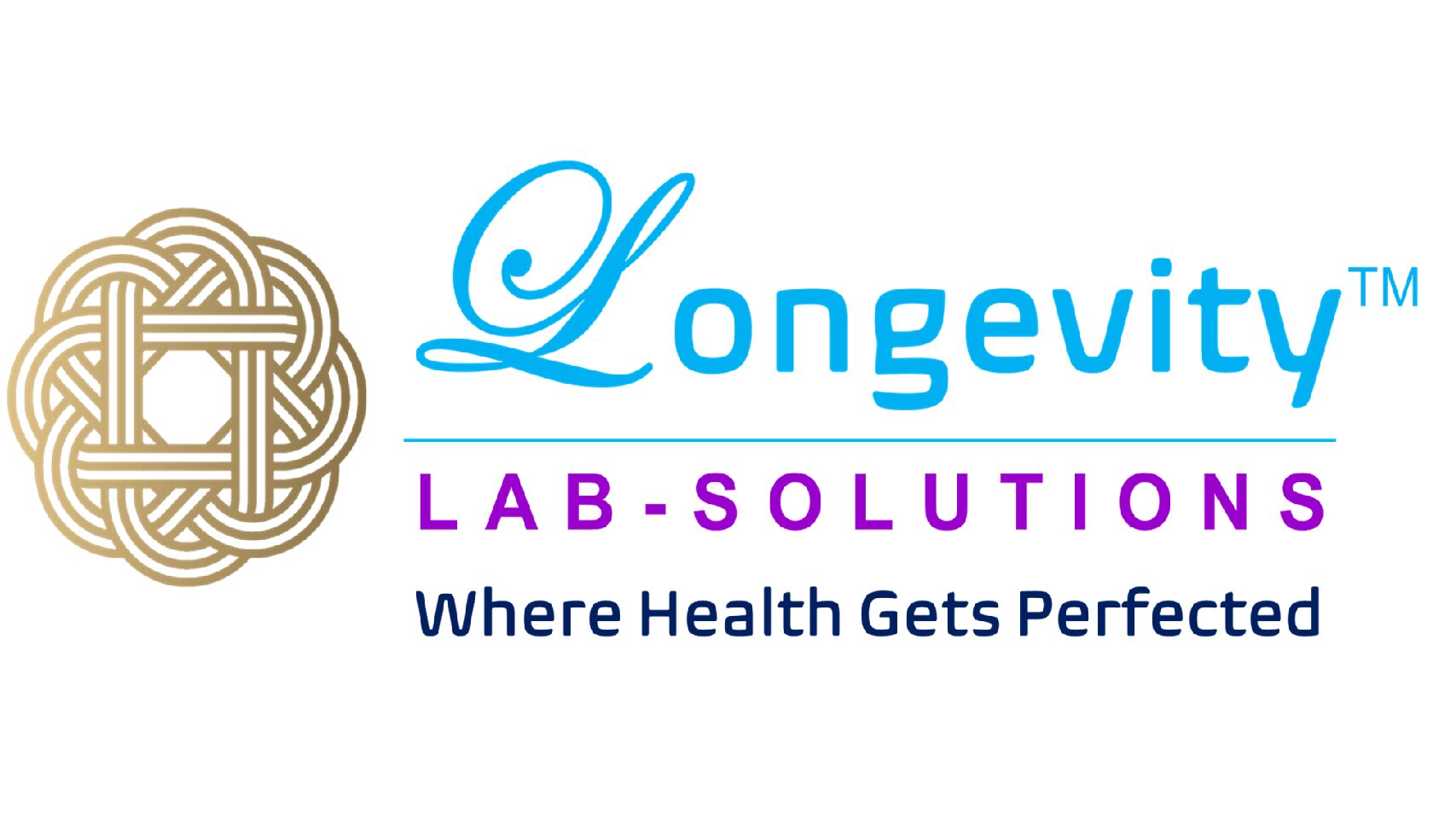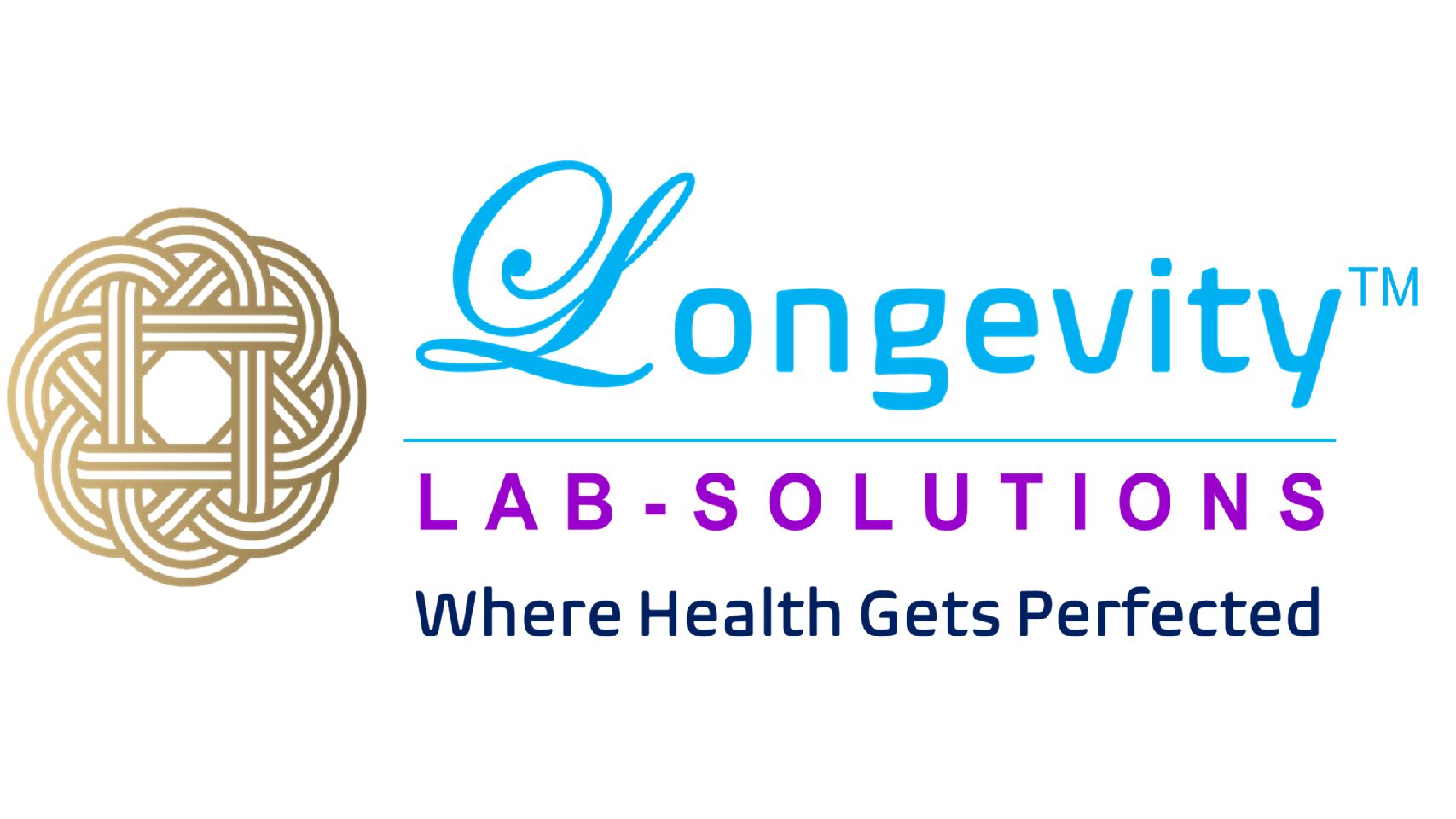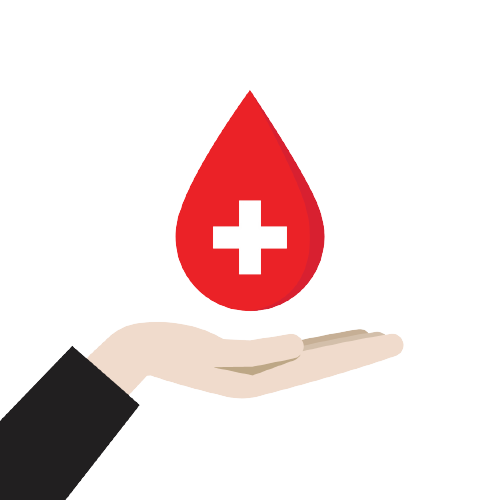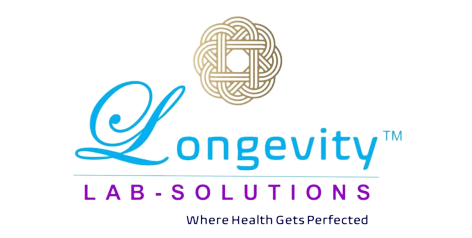Hormone Blood Test
$299.00
A hormone blood test is a laboratory test that measures the levels of specific hormones in the blood. Hormones are chemical messengers produced by various glands and tissues in the body, which regulate a wide range of physiological processes, such as growth and development, metabolism, and reproductive function.
Analytes in this test: 21 Total Analytes:- Cortisol, DHEA-S, DHT, Estradiol, Estriol, Estrone, FH, IGF-1, Insulin, LH, Pregnenolone, Progesterone, SHBG, Testosterone, Free Testosterone, % Free Testosterone, TSH, Free T3, Free T4, Reverse T3, TPO Antibodies.
Description
About the Test
A hormone blood test is a laboratory test that measures the levels of specific hormones in the blood. Hormones are chemical messengers produced by various glands and tissues in the body, which regulate a wide range of physiological processes, such as growth and development, metabolism, and reproductive function.
Hormone blood tests may be used to diagnose and monitor a variety of medical conditions related to hormonal imbalances, such as thyroid disorders, diabetes, and reproductive disorders. The type of hormone blood test ordered will depend on the specific hormone being tested and the medical condition being evaluated. It’s important to talk to a healthcare provider about any concerns related to hormone levels and whether a hormone blood test is necessary or appropriate.
Analytes Tested
21 Analytes
- CORTISOL
- DHEA-S
- DIHYDROTESTOSTERONE (DHT)
- ESTRADIOL
- ESTRIOL
- ESTRONE
- FREE T3
- FREE T4
- FOLLICAL STIMULATING HORMONE (FSH)
- LUTIENINIZING HORMONE (LH)
- IGF-1
- INSULIN
- PREGNENOLONE
- PROGESTERONE
- REVERSE T3
- SEX HORMONE BINDING GLOBULIN (SHBG)
- TESTOSTERONE
- TESTOSTERONE, FREE
- TESTOSTERONE, FREE %
- TPO ANTIBODY
- THYROID STIMULATING HORMONE (TSH)
Cortisol
Cortisol is a hormone produced by the adrenal glands, which are located on top of the kidneys. It belongs to a group of hormones called glucocorticoids and is involved in regulating various processes in the body, including metabolism, immune response, stress response, and inflammation. Here are some key points about cortisol:
-
Stress response: Cortisol plays a vital role in the body’s response to stress. When a person experiences a stressful situation, cortisol levels rise as part of the “fight-or-flight” response. It helps mobilize energy, increases blood sugar levels, and suppresses non-essential functions, such as digestion and immune response.
-
Diurnal rhythm: Cortisol levels follow a diurnal rhythm, meaning they naturally fluctuate throughout the day. Typically, cortisol levels are highest in the morning upon waking up and gradually decrease as the day progresses, reaching their lowest point at night.
-
Metabolism: Cortisol is involved in the regulation of metabolism, particularly in the breakdown of carbohydrates, proteins, and fats. It can influence blood sugar levels, promote gluconeogenesis (the production of glucose from non-carbohydrate sources), and play a role in managing insulin sensitivity.
-
Inflammation and immune response: Cortisol has anti-inflammatory properties and helps regulate the immune response. It can suppress the immune system to prevent excessive inflammation and immune reactions. However, chronically elevated cortisol levels can suppress immune function and increase the risk of infections.
-
Cortisol and health conditions: Abnormal cortisol levels can be associated with various health conditions. High or prolonged elevation of cortisol, such as in conditions like Cushing’s syndrome, can lead to symptoms like weight gain, high blood pressure, and mood changes. Low cortisol levels, such as in conditions like Addison’s disease, can result in fatigue, weight loss, and low blood pressure.
It’s important to note that cortisol levels can be influenced by various factors, including stress, sleep patterns, exercise, medications, and underlying health conditions. If you have concerns about your cortisol levels or suspect an imbalance, it’s recommended to consult with a healthcare professional who can evaluate your symptoms, medical history, and potentially order appropriate tests to assess cortisol levels accurately.
DHEA-S (dehydroepiandrosterone sulfate)
DHEA-S (dehydroepiandrosterone sulfate) is a hormone produced by the adrenal glands. It is the sulfated form of DHEA, a precursor hormone that can be converted into other hormones, such as testosterone and estrogen. Here are some key points about DHEA-S:
-
Production and levels: DHEA-S is the most abundant circulating steroid hormone in the body. It is primarily produced by the adrenal glands, but it can also be synthesized in other tissues. DHEA-S levels peak in early adulthood and decline with age.
-
Hormonal balance: DHEA-S plays a role in maintaining hormonal balance in the body. It is a precursor to sex hormones, including testosterone and estrogen. DHEA-S levels can impact the overall hormone profile and influence various aspects of health and well-being.
-
Age-related changes: DHEA-S levels decline as people age. This decline is a natural part of the aging process and is not necessarily indicative of a health problem. However, low DHEA-S levels have been associated with certain age-related conditions and may impact overall vitality and well-being.
-
Effects on body composition: DHEA-S has been linked to body composition and metabolism. Studies suggest that higher levels of DHEA-S may be associated with increased muscle mass, improved insulin sensitivity, and potentially reduced body fat percentage. However, the relationship between DHEA-S and body composition is complex and can be influenced by other factors such as age, sex, genetics, and lifestyle.
-
Supplemental use: DHEA-S supplementation is available as an over-the-counter dietary supplement. However, the use of DHEA-S supplements for various health conditions is still a topic of debate, and its long-term effects and safety have not been fully established. DHEA-S supplementation should be used under the guidance of a healthcare professional if deemed necessary.
If you have concerns about DHEA-S levels or are considering supplementation, it is recommended to consult with a healthcare professional, such as an endocrinologist or a primary care physician. They can assess your individual situation, evaluate hormone levels if necessary, provide personalized guidance, and discuss any potential benefits or risks associated with DHEA-S supplementation.
Dihydrotestosterone (DHT)
Dihydrotestosterone (DHT) is a potent androgen hormone derived from testosterone. It is synthesized in the body primarily in the prostate gland, hair follicles, and adrenal glands. Here are some key points about DHT:
-
Formation: DHT is formed from testosterone through the action of the enzyme 5-alpha reductase. Testosterone is converted to DHT when 5-alpha reductase converts the testosterone molecule by removing two hydrogen atoms.
-
Androgenic effects: DHT is more potent than testosterone in its androgenic effects, meaning it has a stronger impact on the development and maintenance of male characteristics. It plays a crucial role in the development of male external genitalia during fetal development and influences the growth of body and facial hair, deepening of the voice, and prostate gland development during puberty.
-
Hair loss: DHT is strongly associated with male pattern baldness, also known as androgenetic alopecia. In individuals genetically predisposed to hair loss, DHT binds to hair follicles in the scalp, causing them to shrink over time. This leads to shorter and finer hair strands, eventually resulting in hair thinning and loss.
-
Prostate health: DHT is involved in the growth and maintenance of the prostate gland. Elevated DHT levels or increased sensitivity of the prostate tissue to DHT can contribute to benign prostatic hyperplasia (BPH), a non-cancerous enlargement of the prostate gland that commonly occurs in aging men.
-
Sexual function: DHT plays a role in sexual function in both men and women. In men, it is important for the development and maintenance of sexual characteristics and libido. In women, excessive DHT production can contribute to conditions such as hirsutism (excessive hair growth), acne, and menstrual irregularities.
DHT and hair loss treatments: Some medications, such as 5-alpha reductase inhibitors (e.g., finasteride), can reduce the conversion of testosterone to DHT, thereby slowing down the progression of male pattern baldness. These medications are commonly used in the treatment of hair loss.
It’s important to note that while DHT has significant roles in the body, excessive levels or altered sensitivity to DHT can sometimes contribute to certain conditions. If you have concerns about DHT levels or its impact on your health, it’s recommended to consult with a healthcare professional who can evaluate your specific situation, provide guidance, and discuss potential treatment options if necessary.
Estradiol
Estradiol is a type of estrogen hormone that is produced primarily by the ovaries in women and, to a lesser extent, by the testes in men. Estradiol plays a key role in the development and maintenance of female reproductive function, including the menstrual cycle, the growth and development of the breasts and uterus, and the maintenance of bone density. Estradiol levels can be measured through a blood test and may be used to diagnose certain reproductive disorders or to monitor hormonal therapy. In men, elevated levels of estradiol may be associated with conditions such as gynecomastia (enlarged breast tissue) or decreased testosterone levels. It’s important to talk to a healthcare provider about any concerns related to estradiol or other hormone levels.
An estradiol blood test is a laboratory test that measures the levels of estradiol, a type of estrogen hormone, in the blood. Estradiol plays a key role in the development and maintenance of female reproductive function, including the menstrual cycle, the growth and development of the breasts and uterus, and the maintenance of bone density.
An estradiol blood test may be ordered for a variety of reasons, such as to evaluate menstrual irregularities, infertility, or symptoms of menopause. Abnormal estradiol levels may indicate certain medical conditions, such as ovarian dysfunction, thyroid dysfunction, or polycystic ovary syndrome (PCOS).
Interpreting estradiol blood test results requires the expertise of a healthcare provider, who can evaluate the results in the context of the patient’s medical history and symptoms. If abnormal estradiol levels are detected, the healthcare provider may order additional tests or recommend further evaluation to determine the underlying cause and appropriate treatment.
It’s important to talk to a healthcare provider about any concerns related to estradiol or other hormone levels and whether an estradiol blood test is necessary or appropriate.
Estriol
Estriol is one of the three main naturally occurring estrogens in the human body, along with estradiol and estrone. Estriol is primarily produced during pregnancy, specifically by the placenta. Here are some key points about estriol:
-
Pregnancy hormone: Estriol levels increase significantly during pregnancy, particularly in the second and third trimesters. The placenta produces estriol from the precursor hormones dehydroepiandrosterone (DHEA) and DHEA-S, which are synthesized by the fetal adrenal glands.
-
Estrogenic effects: Estriol has weaker estrogenic activity compared to estradiol and estrone. It binds to estrogen receptors in various tissues and exerts effects similar to other estrogens, including stimulation of uterine growth, development of breast tissue, and maintenance of pregnancy.
-
Pregnancy monitoring: Estriol levels can be measured through blood tests as part of prenatal care to assess the well-being of the fetus. Abnormal estriol levels may indicate potential issues with fetal development or placental function. Estriol testing, along with other markers such as alpha-fetoprotein (AFP) and human chorionic gonadotropin (hCG), can help identify certain fetal abnormalities, such as Down syndrome.
-
Menopausal use: Estriol has also been used in menopausal hormone therapy. Its weaker estrogenic activity may provide potential benefits while potentially having fewer side effects compared to other estrogens. However, the use of estriol for menopause-related symptoms and hormone replacement therapy is a subject of ongoing research and discussion.
Safety considerations: Estriol is generally considered to have a favorable safety profile. It has a shorter half-life than estradiol and estrone, leading to lower overall exposure. However, like any hormone therapy, its use should be discussed with a healthcare professional, and the benefits and risks should be carefully considered.
If you have questions or concerns about estriol, its role in pregnancy, or its potential use for menopausal symptoms, it is recommended to consult with a healthcare professional, such as an obstetrician-gynecologist or a reproductive endocrinologist. They can provide personalized guidance and help determine the most appropriate management for your specific situation.
Estrone
Estrone is one of the three main naturally occurring estrogens in the human body, along with estradiol and estriol. It is primarily produced in the ovaries, adrenal glands, and peripheral tissues through the conversion of androstenedione or estradiol. Here are some key points about estrone:
-
Estrogenic effects: Estrone has estrogenic activity and binds to estrogen receptors in various tissues throughout the body. It plays a role in the development and maintenance of female reproductive organs, secondary sexual characteristics, and bone health.
-
Menopause: During menopause, when ovarian estrogen production declines, estrone becomes the dominant estrogen in the body. It is primarily synthesized in adipose (fat) tissue through the conversion of androstenedione. The increased estrone production from fat tissue can help maintain some estrogenic effects in postmenopausal women.
-
Hormone replacement therapy: Estrone is one of the estrogens used in hormone replacement therapy (HRT) for menopausal symptoms. However, estradiol is generally the preferred estrogen for HRT due to its stronger estrogenic activity.
-
Estrogen metabolism: Estrone can be converted to estradiol or estriol through enzymatic processes in the body. The balance between these estrogen metabolites can impact hormonal and physiological effects.
-
Estrogen-dependent conditions: Estrone levels have been implicated in various estrogen-dependent conditions, including breast cancer and endometrial cancer. Elevated levels of estrone, particularly in relation to estradiol, may be associated with an increased risk of certain estrogen-related cancers.
It’s important to note that estrone levels and their implications can vary depending on individual factors, such as age, sex, hormonal balance, and overall health. If you have concerns about estrone levels or its impact on your health, it is recommended to consult with a healthcare professional, such as an endocrinologist or a gynecologist. They can evaluate your specific situation, provide personalized guidance, and discuss any potential implications or treatment options related to estrone and estrogenic effects.
Follicle Stimulating Hormone (FH)
Follicle Stimulating Hormone (FSH) is a hormone that is produced by the pituitary gland and plays a key role in reproductive function. In women, FSH helps regulate the menstrual cycle and stimulates the growth and maturation of ovarian follicles, which are structures that contain developing eggs. In men, FSH stimulates the production of sperm in the testes. FSH levels can be measured through a blood test and may be used to diagnose certain reproductive disorders or to monitor fertility treatments. It’s important to talk to a healthcare provider about any concerns related to FSH or other hormone levels.
A follicle-stimulating hormone (FSH) blood test is a laboratory test that measures the levels of FSH, a hormone produced by the pituitary gland, in the blood. In women, FSH helps regulate the menstrual cycle and stimulates the growth and maturation of ovarian follicles, which are structures that contain developing eggs. In men, FSH stimulates the production of sperm in the testes.
An FSH blood test may be ordered for a variety of reasons, such as to evaluate menstrual irregularities, infertility, or symptoms of menopause. Abnormal FSH levels may indicate certain medical conditions, such as ovarian dysfunction, thyroid dysfunction, or pituitary gland disorders.
Interpreting FSH blood test results requires the expertise of a healthcare provider, who can evaluate the results in the context of the patient’s medical history and symptoms. If abnormal FSH levels are detected, the healthcare provider may order additional tests or recommend further evaluation to determine the underlying cause and appropriate treatment.
It’s important to talk to a healthcare provider about any concerns related to FSH or other hormone levels and whether an FSH blood test is necessary or appropriate.
Insulin
Insulin is a hormone produced by the beta cells of the pancreas. It plays a crucial role in regulating blood sugar (glucose) levels in the body and maintaining overall glucose homeostasis. Here are some key points about insulin:
-
Glucose regulation: Insulin helps regulate glucose levels in the bloodstream. After eating, especially when consuming carbohydrates, the body digests food into glucose, which is then absorbed into the bloodstream. In response to rising blood glucose levels, the pancreas releases insulin. Insulin acts on various tissues, such as muscle, liver, and fat cells, to facilitate glucose uptake and utilization, thereby lowering blood glucose levels.
-
Anabolic hormone: Insulin is considered an anabolic hormone, meaning it promotes the storage and synthesis of energy substrates. In addition to glucose uptake, insulin stimulates the storage of glucose as glycogen in the liver and muscles. It also promotes the conversion of glucose into fat (lipogenesis) and inhibits the breakdown of stored fats (lipolysis).
-
Insulin resistance: Insulin resistance occurs when cells become less responsive to the effects of insulin, resulting in reduced glucose uptake and impaired glucose regulation. It is a characteristic feature of conditions such as type 2 diabetes and metabolic syndrome. In response to insulin resistance, the pancreas may increase insulin production to compensate, leading to elevated insulin levels in the blood (hyperinsulinemia).
Regulation of other metabolic processes: Insulin also affects other metabolic processes in the body. It promotes protein synthesis, inhibits protein breakdown (proteolysis), and influences the uptake and storage of amino acids. Insulin also plays a role in the regulation of lipid metabolism and can affect the synthesis and storage of triglycerides.
Clinical significance: Monitoring insulin levels and assessing insulin sensitivity is important in the diagnosis and management of various metabolic disorders, such as diabetes and metabolic syndrome. Tests such as fasting insulin levels, insulin resistance index (e.g., HOMA-IR), and glucose tolerance tests can provide insights into insulin function and help guide treatment approaches.
If you have concerns about insulin levels or suspect a metabolic disorder, it is recommended to consult with a healthcare professional, such as an endocrinologist or a primary care physician. They can assess your symptoms, medical history, and perform appropriate tests to evaluate insulin function and provide personalized guidance based on your specific situation.
Insulin-Like Growth Factor-1 (IGF-1)
IGF-1, also known as insulin-like growth factor-1, is a hormone that plays a crucial role in growth and development. It is primarily produced by the liver in response to stimulation by growth hormone (GH).
Here are some key points about IGF-1:
-
Function: IGF-1 is involved in promoting cell growth, proliferation, and differentiation in various tissues and organs throughout the body. It is particularly important during periods of growth, such as childhood and adolescence. IGF-1 stimulates the growth of bones, muscles, and other tissues.
-
Relationship with Growth Hormone (GH): GH, which is produced by the pituitary gland, stimulates the production and release of IGF-1 from the liver. GH and IGF-1 work together in a complex feedback system to regulate growth and development.
-
Relationship with Age and Disease: IGF-1 levels naturally decline with age, reflecting the normal aging process. Low levels of IGF-1 in adults may be associated with conditions such as malnutrition, liver disease, or hormonal imbalances. In some cases, elevated IGF-1 levels may be seen in conditions like acromegaly or certain types of cancer.
Here are some key points regarding IGF-1 and its relevance to women:
-
Growth and Development: IGF-1 is essential for normal growth and development during childhood and adolescence in both boys and girls. It promotes bone growth, muscle development, and overall tissue growth.
-
Reproductive Health: IGF-1 is involved in the regulation of the menstrual cycle and the development and maturation of the reproductive system in women. It plays a role in the growth of ovarian follicles, which produce eggs, and influences the production of sex hormones such as estrogen and progesterone.
-
Pregnancy: During pregnancy, IGF-1 levels increase to support fetal growth and development. It plays a role in placental development, nutrient transfer to the fetus, and the overall growth of the developing baby.
-
Menopause: With the onset of menopause, there is a decline in estrogen and progesterone production. These hormonal changes can also affect IGF-1 levels in women. It has been observed that postmenopausal women may have lower IGF-1 levels compared to premenopausal women.
-
Bone Health: IGF-1 is important for maintaining bone health in women. It promotes bone formation and remodeling. Lower levels of IGF-1 can contribute to an increased risk of bone loss and osteoporosis, particularly during and after menopause.
-
Breast Health: IGF-1 has been implicated in breast development and may play a role in breast cancer. High levels of IGF-1 have been associated with an increased risk of certain types of breast cancer.
Here are some key points regarding IGF-1 and menopause:
-
Relationship with Estrogen: Estrogen plays a role in regulating IGF-1 levels in the body. During menopause, there is a decline in estrogen production, which can contribute to changes in IGF-1 levels.
-
Decreased IGF-1 Levels: It has been observed that menopausal women may experience lower IGF-1 levels compared to pre-menopausal women. The decline in estrogen levels during menopause may contribute to this decrease in IGF-1 production.
-
Impact on Bone Health: IGF-1 is important for bone health as it promotes bone growth and remodeling. Decreased IGF-1 levels during menopause, along with declining estrogen levels, can contribute to a higher risk of bone loss and osteoporosis in postmenopausal women.
-
Cardiovascular Health: IGF-1 has also been associated with cardiovascular health. Low levels of IGF-1 during menopause may be linked to an increased risk of cardiovascular disease. However, the relationship between IGF-1 and cardiovascular health is complex and influenced by various factors.
It’s important to note that the effects of IGF-1 in women and men can be influenced by various factors, including age, hormonal status, genetics, and overall health. The interpretation of IGF-1 levels and their clinical significance should be done in consultation with a healthcare professional who can assess your specific situation and provide personalized guidance.
Luteinizing hormone (LH)
Luteinizing hormone (LH), is a hormone that plays a key role in reproductive function. LH is produced by the pituitary gland and helps regulate the menstrual cycle in women and the production of testosterone in men. In women, LH levels increase during ovulation to trigger the release of an egg from the ovary. In men, LH stimulates the Leydig cells in the testes to produce testosterone. LH levels can be measured through a blood test and may be used to diagnose certain reproductive disorders or to monitor fertility treatments. It’s important to talk to a healthcare provider about any concerns related to LH or other hormone levels.
A luteinizing hormone (LH) blood test is a laboratory test that measures the levels of LH, a hormone produced by the pituitary gland, in the blood. In women, LH helps regulate the menstrual cycle and triggers the release of an egg from the ovary (ovulation). In men, LH stimulates the Leydig cells in the testes to produce testosterone.
An LH blood test may be ordered for a variety of reasons, such as to evaluate menstrual irregularities, infertility, or symptoms of menopause. Abnormal LH levels may indicate certain medical conditions, such as polycystic ovary syndrome (PCOS), pituitary gland disorders, or premature ovarian failure.
Interpreting LH blood test results requires the expertise of a healthcare provider, who can evaluate the results in the context of the patient’s medical history and symptoms. If abnormal LH levels are detected, the healthcare provider may order additional tests or recommend further evaluation to determine the underlying cause and appropriate treatment.
It’s important to talk to a healthcare provider about any concerns related to LH or other hormone levels and whether an LH blood test is necessary or appropriate.
Pregnenolone
Pregnenolone is a hormone that serves as a precursor to the production of other steroid hormones in the body. It is synthesized primarily in the adrenal glands, liver, skin, and brain. Here are some key points about pregnenolone:
-
Hormonal precursor: Pregnenolone acts as a precursor molecule for the synthesis of various steroid hormones, including progesterone, cortisol, aldosterone, estrogen, and testosterone. It is considered the “mother hormone” because it is involved in the biosynthesis of many other hormones.
-
Neurosteroid properties: Pregnenolone is also classified as a neurosteroid because it is synthesized in the brain and exerts effects on the central nervous system. It acts on GABA receptors and has been suggested to have neuroprotective, cognitive-enhancing, and mood-regulating properties. Research on the neurosteroid effects of pregnenolone is ongoing.
-
Natural production and supplementation: Pregnenolone is naturally produced by the body in small amounts. However, pregnenolone supplements are available as over-the-counter dietary supplements. Some people may use pregnenolone supplementation for various purposes, such as to support cognitive function, improve mood, or address age-related changes. However, the safety, effectiveness, and long-term effects of pregnenolone supplementation have not been extensively studied.
-
Medical use: Pregnenolone is occasionally used in medical settings for specific purposes. For example, it may be prescribed in certain cases of adrenal insufficiency or to support hormone production in individuals with low levels of specific hormones. The use of pregnenolone for medical purposes should be determined by a healthcare professional based on individual needs and in consideration of potential risks and benefits.
Regulation and caution: Since pregnenolone is available as a dietary supplement, it is important to exercise caution and consult with a healthcare professional before using it. Like any supplement or hormone, pregnenolone can have interactions with medications, and its use should be approached with proper knowledge and guidance.
If you have questions or are considering the use of pregnenolone, it is recommended to consult with a healthcare professional, such as an endocrinologist or a primary care physician. They can provide personalized guidance, evaluate your specific situation, and discuss potential benefits, risks, and appropriate usage based on your individual needs.
Progesterone
Progesterone is a hormone that is produced primarily by the ovaries in women and, to a lesser extent, by the adrenal glands. Progesterone plays a key role in preparing and maintaining the uterus for pregnancy. During the menstrual cycle, progesterone levels rise in the second half of the cycle to prepare the uterus for a possible pregnancy. If pregnancy occurs, progesterone levels remain elevated to help support the developing fetus. If pregnancy does not occur, progesterone levels decrease and a new menstrual cycle begins. Progesterone levels can be measured through a blood test and may be used to diagnose certain reproductive disorders or to monitor hormonal therapy. It’s important to talk to a healthcare provider about any concerns related to progesterone or other hormone levels.
Testosterone
Testosterone is a male sex hormone that is produced by the testicles in men and in smaller amounts by the ovaries in women. It plays a key role in male sexual development, including the growth of the penis and testicles, the deepening of the voice, and the growth of facial and body hair. Testosterone also helps regulate bone density, muscle mass and strength, and red blood cell production. In addition, it is important for maintaining a healthy libido and overall well-being. Low testosterone levels can lead to decreased sexual function, decreased muscle mass, decreased bone density, and increased body fat. A blood test can be used to measure testosterone levels, and testosterone replacement therapy may be recommended for individuals with low testosterone levels.
Testosterone is made by:
- The testicles (or testes), the part of the male reproductive system that makes sperm
- The ovaries, the part of the female reproductive system that makes eggs
- The adrenal glands, organs on top of each kidney that make several hormones
During male puberty, testosterone causes body hair, muscle growth, and a deepening voice. In adult life, it controls sex drive, maintains muscle mass, and helps make sperm. In females, testosterone is important for the growth of bones and muscles, and healthy organs.
Free Testosterone
Free testosterone refers to the fraction of total testosterone that is unbound and biologically active in the bloodstream. Testosterone is an important sex hormone present in both males and females, although it is typically present at higher levels in males. Here are some key points about free testosterone:
-
Bound and unbound testosterone: Testosterone circulates in the bloodstream in two forms: bound and unbound. Bound testosterone is tightly bound to proteins, mainly sex hormone-binding globulin (SHBG) and albumin. Unbound testosterone, also known as free testosterone, is not bound to any proteins and is considered the bioactive form of testosterone.
-
Biological activity: Free testosterone is the fraction of testosterone that can freely enter cells and interact with androgen receptors to exert its biological effects. It is responsible for various physiological functions related to sexual development, muscle growth, bone density, mood regulation, and libido.
-
Testing: Measuring free testosterone levels in the blood can provide information about the biologically active fraction of testosterone. However, it is worth noting that accurately measuring free testosterone can be challenging due to technical complexities. Most commonly, total testosterone levels are measured, and free testosterone is estimated using calculations based on total testosterone, SHBG, and albumin levels.
-
Clinical significance: Free testosterone levels may be useful in certain clinical contexts, such as diagnosing and monitoring conditions related to testosterone deficiency (hypogonadism) in males or assessing hormonal imbalances in females. Low levels of free testosterone can be associated with symptoms such as low energy, decreased libido, muscle weakness, and mood changes.
Interpretation: It’s important to interpret free testosterone levels in the context of other clinical factors and individual symptoms. Reference ranges for free testosterone can vary between laboratories, and what is considered “normal” can depend on factors such as age and sex.
If you have concerns about free testosterone levels or suspect a hormonal imbalance, it is recommended to consult with a healthcare professional, such as an endocrinologist or a urologist for males, or a gynecologist for females. They can assess your symptoms, medical history, and other relevant factors to determine the most appropriate course of action and provide personalized guidance based on your specific situation.
Thyroid Hormones
The thyroid gland produces several hormones that play essential roles in regulating metabolism, growth, and development. The main thyroid hormones are:
-
Triiodothyronine (T3): T3 is the active form of thyroid hormone. It is more potent and has a more rapid effect on target tissues. T3 is responsible for regulating metabolism, energy production, and body temperature. It plays a crucial role in normal growth and development, as well as maintaining the function of various organs and tissues.
-
Thyroxine (T4): T4 is the main hormone produced by the thyroid gland. It is considered a prohormone because it is converted into T3 in peripheral tissues. T4 is released in larger quantities compared to T3, but its biological activity is lower. T4 serves as a reservoir of thyroid hormone and is converted into T3 as needed.
-
Reverse T3 (rT3): Reverse T3 is a biologically inactive form of T3. It is produced in small amounts during the conversion of T4 to T3 and serves as a regulatory mechanism. In certain conditions or states of stress, the body may produce higher levels of reverse T3, which can temporarily decrease the availability and action of active T3.
Thyroid hormones play a critical role in maintaining overall health and well-being. They regulate the body’s metabolism, energy production, heart rate, body temperature, and growth and development. Abnormal levels of thyroid hormones can lead to various health conditions:
Hypothyroidism: In hypothyroidism, the thyroid gland does not produce enough thyroid hormones. This can result in symptoms such as fatigue, weight gain, constipation, cold intolerance, and dry skin.
Hyperthyroidism: Hyperthyroidism is characterized by excessive production of thyroid hormones. It can cause symptoms such as weight loss, rapid heartbeat, irritability, heat intolerance, and increased sweating.
Thyroid nodules and thyroid cancer: Thyroid nodules are abnormal growths in the thyroid gland. Some nodules can produce excess thyroid hormones, leading to hyperthyroidism. Additionally, thyroid cancer can affect hormone production and thyroid function.
The diagnosis and management of thyroid disorders typically involve evaluating thyroid hormone levels through blood tests, including measurements of TSH (thyroid-stimulating hormone), T3, T4, and sometimes reverse T3. If you have concerns about your thyroid hormone levels or suspect a thyroid disorder, it is recommended to consult with a healthcare professional, such as an endocrinologist. They can assess your symptoms, order appropriate tests, and provide personalized guidance and treatment options based on your specific situation.
TPO Antibodies
TPO (thyroid peroxidase) antibodies are autoantibodies that target the thyroid peroxidase enzyme. Thyroid peroxidase is an enzyme involved in the production of thyroid hormones in the thyroid gland. Here are some key points about TPO antibodies:
-
Autoimmune thyroid disorders: TPO antibodies are primarily associated with autoimmune thyroid disorders, including Hashimoto’s thyroiditis and Graves’ disease. In these conditions, the immune system mistakenly targets the thyroid gland, leading to inflammation and damage.
-
Hashimoto’s thyroiditis: Hashimoto’s thyroiditis is the most common cause of hypothyroidism (underactive thyroid) and is characterized by the presence of TPO antibodies. TPO antibodies contribute to the destruction of thyroid tissue, impairing thyroid hormone production and leading to symptoms such as fatigue, weight gain, depression, and cold intolerance.
-
Graves’ disease: TPO antibodies can also be found in a subset of individuals with Graves’ disease, an autoimmune disorder that causes hyperthyroidism (overactive thyroid). In Graves’ disease, TPO antibodies can stimulate the thyroid gland, leading to excessive production of thyroid hormones and symptoms such as weight loss, rapid heartbeat, irritability, and heat intolerance.
-
Thyroid function and TPO antibodies: Elevated levels of TPO antibodies are often associated with thyroid dysfunction, but not all individuals with TPO antibodies develop thyroid problems. The presence of TPO antibodies may indicate an increased risk for future thyroid dysfunction.
-
Testing and diagnosis: TPO antibody testing involves a blood test to measure the level of TPO antibodies in the bloodstream. It is often used alongside other thyroid function tests, such as TSH, free T4, and free T3 levels, to aid in the diagnosis of autoimmune thyroid disorders.
Treatment and management: Treatment for autoimmune thyroid disorders usually involves hormone replacement therapy with synthetic thyroid hormones (levothyroxine) to normalize thyroid hormone levels in cases of hypothyroidism. In cases of hyperthyroidism, treatment may include medications to suppress thyroid hormone production or radioactive iodine therapy to reduce thyroid gland activity.
If you have been diagnosed with TPO antibodies or suspect an autoimmune thyroid disorder, it is recommended to consult with a healthcare professional, such as an endocrinologist. They can evaluate your symptoms, order appropriate tests, provide a proper diagnosis, and develop a personalized treatment plan based on your specific situation.
Sex Hormone-Binding Globulin (SHBG)
SHBG stands for Sex Hormone-Binding Globulin. It is a protein produced in the liver and released into the bloodstream. Here are some key points about SHBG:
Binding and transport: SHBG has a high affinity for binding to certain sex hormones, including testosterone, dihydrotestosterone (DHT), and estradiol (a form of estrogen). When sex hormones are bound to SHBG, they are less available and active in the body. SHBG serves as a carrier protein, helping to transport these hormones through the bloodstream.
Hormone regulation: By binding to sex hormones, SHBG helps regulate their levels and availability in the body. It can influence the balance between free (unbound) and bound forms of these hormones. The balance between bound and unbound hormones affects their bioavailability and their ability to exert their effects on target tissues.
Influence on hormone activity: SHBG-bound hormones have a reduced ability to interact with hormone receptors and exert their effects compared to free (unbound) hormones. Thus, SHBG can affect the overall hormone activity and influence the balance between active and inactive forms of sex hormones.
Factors affecting SHBG levels: Various factors can influence SHBG levels in the body. These include sex hormone levels, insulin resistance, obesity, thyroid hormones, liver function, and certain medications. For example, higher estrogen levels tend to increase SHBG production, while androgens such as testosterone and DHT decrease SHBG production.
Clinical significance: SHBG levels can be measured through blood tests. Evaluating SHBG levels, along with other hormone markers, can provide insights into hormone balance and potential hormonal imbalances. Abnormal SHBG levels may be associated with conditions such as polycystic ovary syndrome (PCOS), insulin resistance, and metabolic syndrome.
It’s important to note that SHBG levels alone do not provide a complete picture of hormone balance, and interpretation should consider other clinical factors and individual symptoms. If you have concerns about SHBG levels or suspect a hormonal imbalance, it is recommended to consult with a healthcare professional, such as an endocrinologist or a reproductive specialist. They can assess your specific situation, evaluate hormone levels, and provide personalized guidance based on your individual needs.
Specimen Requirements
SST tube of blood, serum
Turn Around Time
24 – 72 hours
Price For Test
Price: $299







